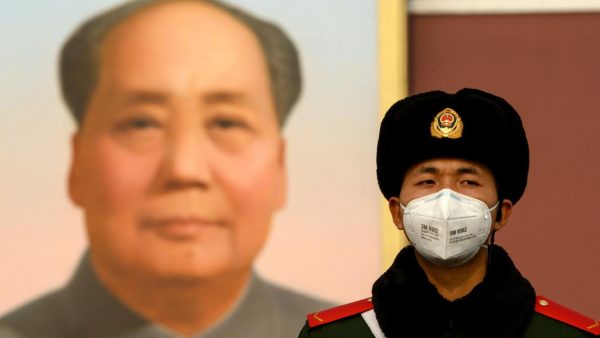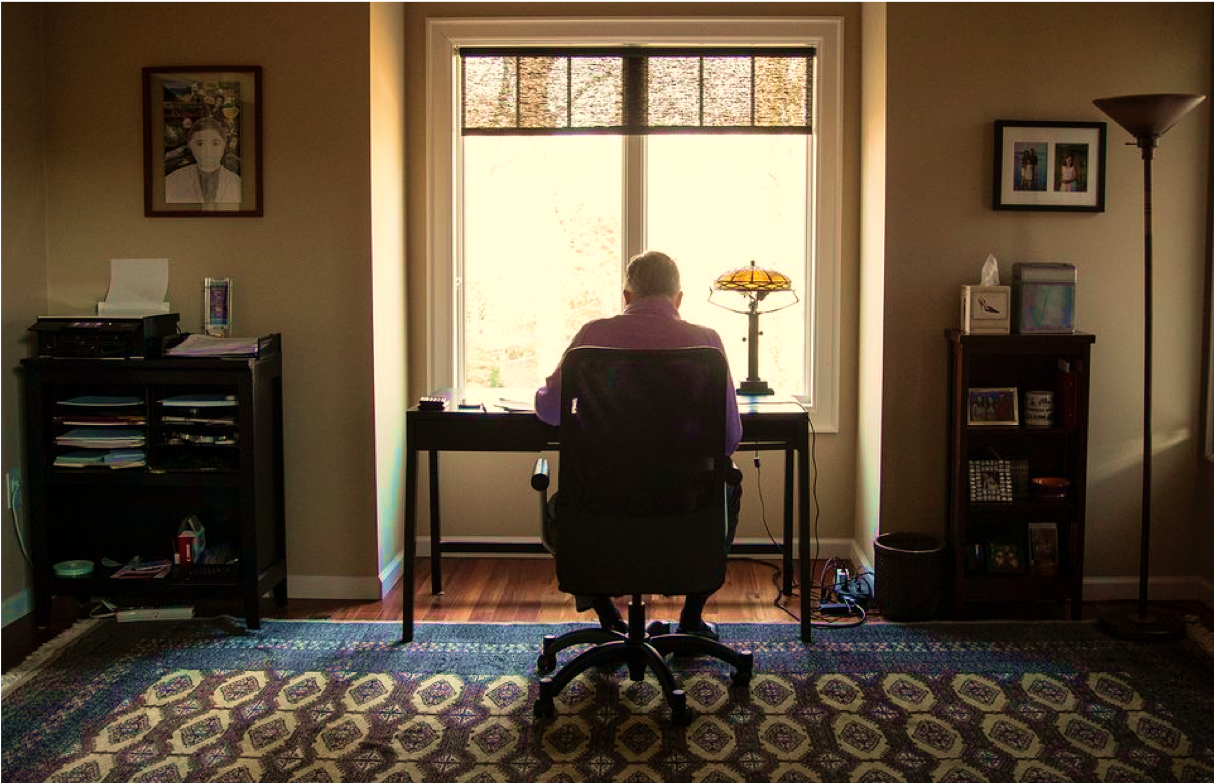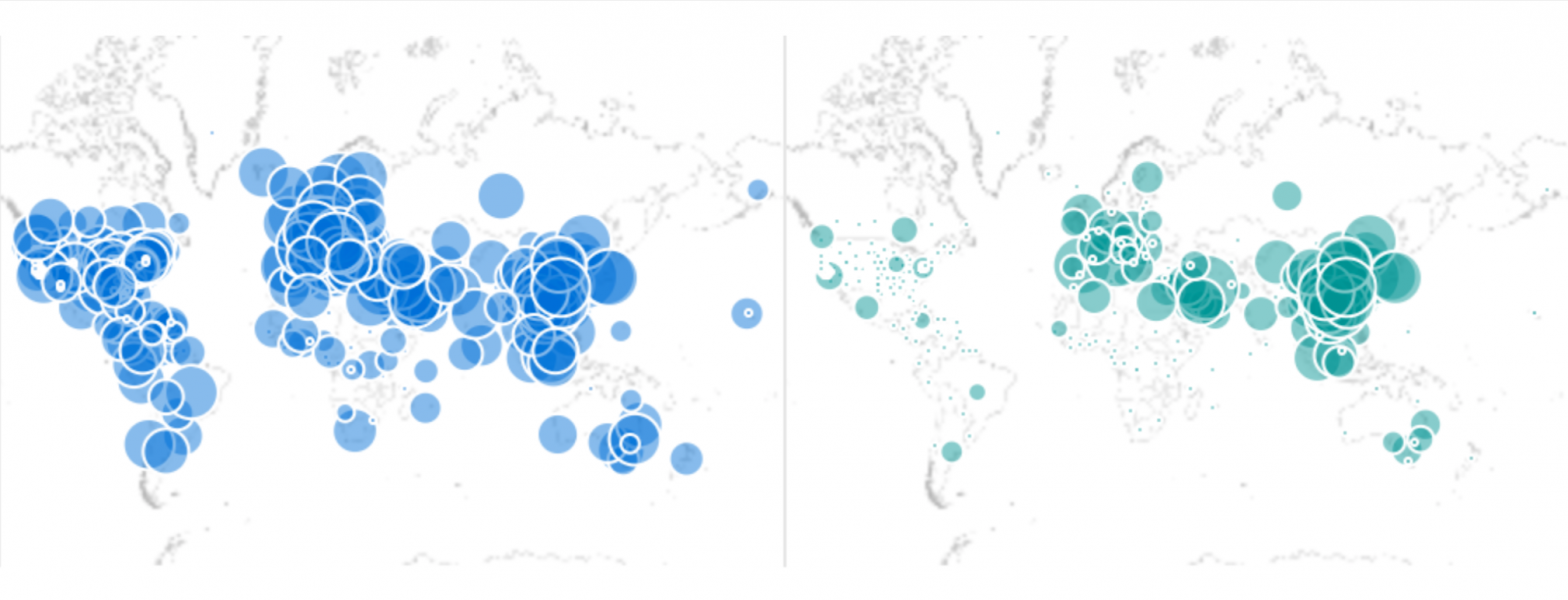The decisive move will show the CPC we mean business.
Seriously Unserious

Who the hell is in charge of Orange County?
The aim of every political constitution is, or ought to be, first to obtain for rulers men who possess most wisdom to discern, and most virtue to pursue, the common good of the society; and in the next place, to take the most effectual precautions for keeping them virtuous whilst they continue to hold their public trust. The elective mode of obtaining rulers is the characteristic policy of republican government…. Who are to be the electors of the federal representatives? Not the rich, more than the poor; not the learned, more than the ignorant; not the haughty heirs of distinguished names, more than the humble sons of obscurity and unpropitious fortune. The electors are to be the great body of the people of the United States.”
—Federalist #57
Our founders charged the People with picking leaders. And it is in the People’s self-interest to pick the wisest among them.
But when peace and prosperity abound, the People are tempted to take a break from serious considerations. And the more serious among them might take a break from running for office. The result is that unserious times provide us with unserious leaders. When the times change quickly—invasion, depression, or disaster—the rulers don’t. We are left with unserious people leading us through serious crises.
The leadership problem we are facing with the Coronavirus Pandemic, and the governmental responses to it, is the product of this process. It is playing out on all levels of government today.
Clown Town
I live in Orange County, California. Here’s a sampling of what my leaders have done to impress—at least in their minds—the seriousness of COVID-19 upon me and my fellow citizens.
Locally, at 2:26 p.m. on March 17, we got an Order from the County (this Order and the aftermath all pre-dated the statewide shutdown, but is still instructive as to our leaders). Here’s what they ordered: “Effective immediately…the following will be in effect in Orange County: 1. All public and private gatherings of any number of people, including at places of work…are prohibited.”
Just to make sure you were paying attention, the County closed with a warning: “this Order may be enforced by the Sheriff or chiefs of police.” Serious stuff. Businesses were closed, effective immediately, and the cops could come after you for disobedience.
Where did this strong medicine come from?
This was the valid Order of Orange County’s Health Officer. Who is that and who elected her? No one knew—before March 17 that is, when, suddenly, no one could go to work and each had ample time to Google this doctor who had just unemployed them. Turns out she, ultimately, works for the County Board of Supervisors. They are elected by the People. But their bureaucrat doctor, seemingly without their approval, shut down by fiat all “non-essential” businesses in a county of over 3 million people.
How did we get from “the aim of every political constitution”—from republican government—to here?
“Non-essential,” in crisis parlance, is not defined by whether your customers need your work, or whether you need to pay your bills or make payroll. It is defined by a government list. Of course, government is on the government’s own list of “essential” work. One thing I didn’t see on the list was unelected county doctors issuing legal orders with or without the approval of the elected Supervisors. That appears to have fallen under the category of “government.”
But at least some Supervisors’ phones lit up the evening of March 17, when a few million people were put out of work by one of their employees—again, without their vote or input. The response from Supervisor Don Wagner, per Los Angeles NBC News? “The health department order does not accurately reflect what Dr. Quick intended to order.”
So, when she wrote “effective immediately…all gatherings of any number of people, including at places of work…are prohibited,” what did she intend to do?
The answer was swiftly plowed under by the assignation of blame to, yes, the People themselves. “People were reading the order to say non-essential businesses needed to shut down,” the Supervisor sighed. Oh, those crazy People. How could they possibly have read the Order as shutting down businesses?
Because the People didn’t know how to properly interpret bureaucrats’ bungling Orders, this one had to be revised. And, as everyone knows, the way to rescind a lawful Order is by…a Press Release. 6:51 p.m., same day: “It is important for all Orange County businesses to remain open.” The Press Release left off any threat of sheriffs or police chiefs.
I applauded the quick turnaround, as doubtless many did. People understand mistakes will be made in a hurry. But the nagging questions remain: When did a Press Release get to trump a lawful Order? How could an entire county closure escape review or approval by the elected Board? In short, who is running Orange County? So far, the County had evinced no clear understanding of the impact they had on people’s lives. To the contrary, they had shown they were not serious people up to the task of tackling serious challenges.
They weren’t finished, either. Whatever it was, the press release “law” wasn’t in place for long. By 4:40 p.m. on March 18, the County issued an Amended Health Order: “it is important for Orange Country businesses to remain open while practicing social distancing.” Yesterday’s order, the amendment went on, “is no longer in effect…nothing in this document prohibits businesses or other entities from operating within Orange County.” For the switch, the County appealed to “new written, changing state guidance,” apparently issued within 24 hours of the previous order, yet otherwise unidentifiable. The impression left for the average business owner and employee? A day ago this seemed serious; now it feels like a joke.
State SNAFU
The State of California has led the charge in serious actions against the virus. Governor Newsom wrote to President Trump that 25,500,000 people in California would be infected. According to The Hill, his spokesman said Newsom “has been honest about the threat of the virus and its impact on the health and welfare of Californians…. This projection shows why it’s so critical that Californians take action to slow the spread of the disease.”
Well, when a politician’s spokesman makes the point of explaining the Governor “has been honest,” we all sit up straight and pay attention. When a lethal virus is projected by our highest elected official to strike over 25 million people just in our state, things have gotten serious again. Surely, the People are justified in thinking, the duly elected state government will rise to such an occasion.
And sure enough, after the Orange County Keystone Cops routine wrapped up and we all went back to work, on March 19, the Governor Ordered “all individuals living in the State of California”—almost 40 million of us—“to stay home…except as needed to maintain…operations of the federal critical infrastructure sectors.” Yes—government again made its own list.
But lots of people promptly asked what else counts as critical infrastructure. The Governor explained: “essential businesses” like gas stations, pharmacies, grocery stores, and banks would join the ranks of essential government offices. Closed would be gyms, dine-in restaurants, bars, and entertainment venues. What about childcare, school-provided lunches, medical appointments? All valid concerns of the People, all explained by the Governor. So far, so good, it seemed.
But apparently there were not just questions about the Governor’s serious, sweeping order—there were even some special ones that were “frequently asked.” The People had to know: can you still get prescription medications? Yes, of course! What about, well, pot? Yes again—cannabis obviously is critical stuff. “We need to meet this moment and flatten the curve together,” he said. And to do that, the People needed to be able to run out, buy some pot, and get high. That was the public spirit we needed. That was emblematic of the sacrifice we were being asked to make. Serious stuff.
We’ve entered a strange phase of history when a cop can pull you over for driving to work—but if you say you’re going to buy pot he lets you go. Maybe it’s the purple haze hanging over the Southland, but I’m not sure this is a phase that causes the People to take their leaders seriously.
Which makes them wonder how serious the virus threat is.
The FUBAR Feds
Well, at least crazy California has some adult supervision by the feds, right? Surely we’ve sent to Washington leaders wise and sober-minded enough (California “essential” businesses notwithstanding) that we can get some direction on this crisis. We’ve had task forces, presidential briefings, and massive relief legislation move through Congress at record speed.
They are, at least, acting like serious people addressing a serious problem, right?
We’ve had two major pieces of legislation signed into law in just a week, the Families First and CARES Acts.
A quick note on Families First that I’ll return to later: did you notice all the worker protections, paid leave, etc. do not apply to companies with over 500 employees? When you first heard about all the benefits to employees facing difficulties because of COVID-19, didn’t you expect “big business,” not small business, to foot the bill? Why, if this is so serious, were the protections limited to employees at companies under 500 workers?
And then, just after Families First, they passed the CARES Act—a law costing over $2 trillion. That’s on top of (and more than double) the deficit of nearly $1 trillion already in play for this year. In one bill, it adds another 10% to the country’s entire debt (not, mind you, an annual budget that adds that much—just one bill, and there’s more to come). All this to address both the health and economic devastation wrought by this virus.
The Speaker of the House—ostensibly the most serious member of Congress, as its elected leader—accuses the President of fiddling while “people are dying.” Her party’s House Leader, Steny Hoyer, in getting the bill negotiated, said: “We’ll have to worry about the costs at some point in time…. This is an emergency; we need to get this done.” The President says it is a “war.” Death, emergency, and war: all sound serious.
Here again, one watches the politicians’ lips and hears their words, and one believes. We are in serious times. But a deeper dive into their actions reveals words don’t always mean what you think they mean.
Faced with reports of 3.3 million jobless claims being filed for the week ending March 21 and with projections of a looming 32% unemployment rate, we learn the $2 trillion law includes such virus-related provisions as:
- sunscreen approvals for L’Oreal (I was previously unaware of the benefits of avoiding UV Rays with COVID-19);
- bans on companies opining on their employees forming labor unions (again, the People may have difficulty connecting a union to virus protections, but I’m sure it’s there—just ask the ‘leaders’);
- $25 million for the Kennedy Center and $75 Million more for various art groups (apparently the virus hates classical music);
- $60 million for NASA (if we need a space agency in this crisis, it’s really bad); and
- Congress finally changing the term “substance abuse” to “substance use disorder” in another law (apparently, they hated the un-P.C. term and knew we’d “bend the curve” if we got our phrasing right.)
People we pay—Members of Congress and staff—actually took the time, in the midst of a “war,” to draft these provisions. To face a national emergency as great as this, we must have our sunblock at the ready and tune the spaceships up. Some in Congress insisted we had to go even further: airlines had to go carbon neutral by 2025, and companies had to put a woman on their boards of directors.
What, other than the virus, connects the two big federal laws, which address these serious issues? What do companies with over 500 employees, major cosmetic companies, the Kennedy Center, and NASA all have in Washington, D.C. (and cannabis dispensaries in Sacramento) that small companies—and the People—do not? Paid professionals that never let a crisis go to waste.
But when our elected leaders unwisely give in to these professionals it allows unserious items to creep into some of the most (supposedly) serious bills ever passed. The add-ons that made the cut and the frivolities that didn’t degrade the seriousness of the law and therefore the perception of the crisis itself.
If leaders can’t take a challenge seriously, the People will have difficulty doing so too, and bear a grudge even if they do. Today, our leaders—at all levels of government—are not just playing with our money, or our jobs, but also our lives. “Life, Liberty, and the Pursuit of Happiness” is turned upside down.
Publius was right. The corruption of our political system by crony capitalism, bureaucratic patronage, and appointee incompetence should never tire the People of finding and elevating rulers “who possess most wisdom to discern, and most virtue to pursue, the common good of the society.”
The American Mind presents a range of perspectives. Views are writers’ own and do not necessarily represent those of The Claremont Institute.
The American Mind is a publication of the Claremont Institute, a non-profit 501(c)(3) organization, dedicated to restoring the principles of the American Founding to their rightful, preeminent authority in our national life. Interested in supporting our work? Gifts to the Claremont Institute are tax-deductible.
In wars, men die.
For the first time in centuries, we’re bringing it all back home.
Facing up to the failed state of America's mandarin class
Don’t let the Left use your panic for their gain.
We blew it. Normies are paying a heavy price.






